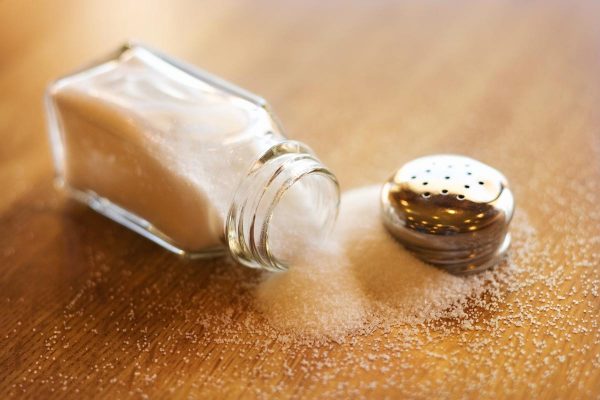Yes, eating too much salt can harm your body… but the right kind of salt can boost your mineral intake
12/26/2016 / By D. Samuelson

Salt is made up primarily of two elements, sodium and chloride (NaCl). It also has naturally occurring trace elements of calcium and potassium. Man tosses in a few more ingredients in regular table salt, according to Draxe.com. There is usually a chemical anti-caking agent, trace amounts of iodine, dextrose – better known as sugar -and sometimes an aluminum derivative. Fooducate.com reports that the iodine began to be added in the early 1900’s because people who were not getting enough iodine developed “a thyroid goiter.” Today, most people get appropriate iodine from seafood, kale, seafood vegetables, brussels sprouts and cabbage. Iodine deficiency can also cause hypothyroidism and mental retardation in infants whose mothers didn’t have enough iodine during pregnancy.
Sodium, which is a primary component of all salt regardless of origin, can be very damaging to one’s health if too much is ingested. Businessinsider.com reports that two much salt can do harm to the brain, arteries and kidneys. Most folks are aware that too much salt can trigger higher blood pressure, and potentially create clogged arteries that could burst. But there are also arteries that go into the brain. When these are damaged by too much salt, the amount of available oxygen is reduced. This can cause dementia.
Our kidneys can slow down if we ingest too much salt. Water retention is a result. When kidneys are unable to filter and process the elements as usual, they get strained and could fail. And when it comes to how salt affects the heart, too much can “starve the heart of oxygen and nutrients, which may cause sharp chest pains.” Heart attacks are possible if an artery becomes clogged, or bursts.

The American Heart Association recommends a daily intake of no more than 2500 milligrams (mgs) per day, although they suggest an “ideal limit is 1500 mgs per day.” Considering that one teaspoon of table salt has 2300 mgs of sodium is one thing. Maybe you don’t just arbitrarily shake your salt shaker, which is a good thing. Unfortunately, sodium is rampant in canned products, processed cheeses, salad dressings, cured meats, breads, cakes and many other food products. Look for the names sodium nitrate, sodium sulfite, sodium propionate, sodium bicarbonate, sodium hydroxide, sodium benzoate, sodium alginate, disodium phosphate or monosodium glutamate (MSG). It’s very easy to go way over the suggested limit, if you’re not reading the labels and portion sizes.
Alternatives to table salt have become quite popular, as there are no man made added ingredients. But when it comes to sodium, it’s very surprising to see just how close in sodium content all the salts are. The Journal of Sensory Studies compared salts around the world and discovered that the sodium percentage was less in alternative salts, but not by much. This chart, courtesy of Authoritynutrition.com shows the differences.
So even for those folks who are salt aware and already purchasing something other than table salt, there is still a significant amount of sodium in all salt. And while we can certainly be better label readers to avoid sodium as best we can, vigilance is still needed when we bake, visit the local deli and dine out with friends.
Sources:
Submit a correction >>
Tagged Under:
Dangers of Sodium in all salt, Himalayan Salt, Sodium has many forms, Table Salt
This article may contain statements that reflect the opinion of the author






















